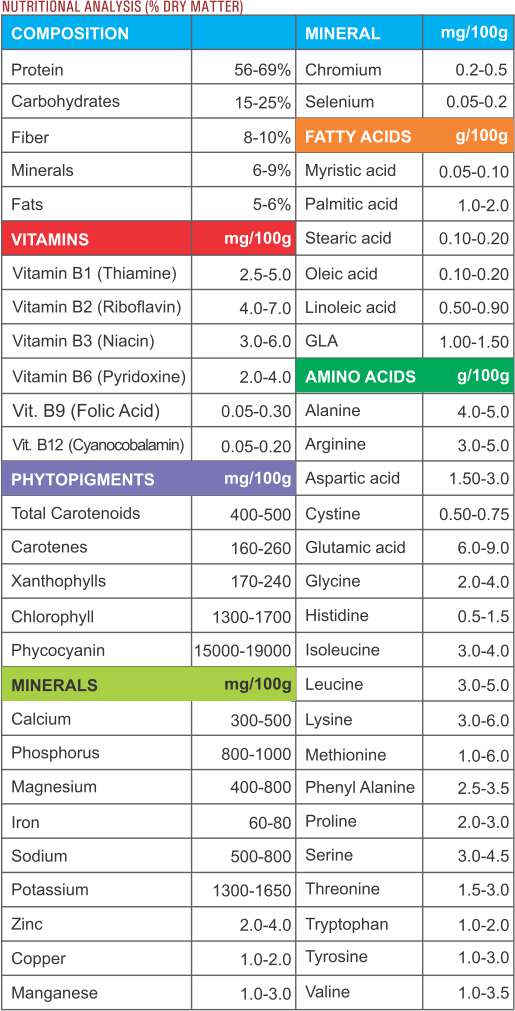Free Shipping Australia Wide
Made with under the sun daily.
Free Shipping Australia Wide
Made with under the sun daily.
It is one of the first life forms designed by nature more than 3.6 billion years ago. Spirulina contains billions of years of evolutionary wisdom in its DNA and is an offspring of earth’s first photosynthetic life forms.

Under the microscope, Spirulina is a blue-green colour and has the appearance of a spiral of long thin threads.
Spirulina is exceedingly adaptable and occurs in a wide variety of environments including freshwater, tropical springs, saltwater and saltpans.
Spirulina is full of nutrients and very easily digested. Commercially, Spirulina is available as a powder, tablet and capsule or added to foods and health tonics.

There are many forms of valuable algae and in the last 40 years, Spirulina has been singled out for its nutritional properties. Long before it became a favourite of the health food industry, Spirulina was eaten regularly by North Africans and Mexicans centuries ago. Now many people around the globe realize that Spirulina is a powerful food with huge potential as a whole food source & medicine.
The cultivation of Spirulina has also brought interest because, as with most microalgae, Spirulina is extremely adaptable, often thriving in extreme conditions. With its rich nutritional goodness and ability to grow in adverse conditions, Spirulina has a huge potential to be a food source that will help feed and nourish the world’s population. A great deal of research has concentrated on the cultivation and harvesting of what is affectionately referred to as ‘the super food’. It has been described as ‘probiotic’ and a ‘superfood’.
As a plant, Spirulina is incredibly rich containing a balance of nutrients that make it virtually a ‘whole food’ capable of complimenting life without the need for other dietary supplements.
Spirulina provides proteins, vitamins, many minerals, essential amino acids, carbohydrates and enzymes. Spirulina is the richest source of protein and provides 18 out of 22 amino acids that the body needs for normal growth and development. It contains at least 60% vegetable protein which can be easily digested. Its outstanding nutritional profile also includes the essential fatty acids, GLA fatty acid, lipids, the nucleic acids (RNA and DNA), Vitamin B Complex, Vitamin C and Vitamin E and phytochemicals, such as carotenoids, chlorophyll (blood purifier), and phycocyanin (a blue pigment), which is a protein that is known to inhibit cancer.
Source: IIMSAM Spirulina Pledge
What is Spirulina

Founded in Southeast QLD and located on Certified Organic farmland, we are an Australian-made Fresh Spirulina commercial farm. We are subject to the Australia New Zealand Food Standards Code and produce fresh Spirulina using food-grade nutrients only, pay attention to the freshness and health of our spirulina.
Founded in Australia, Southeast QLD, Fresh Spirulina is a local biotech health company conducting research and innovation of micro & macroalgae as plant-based food products.
By appointment only
Monday - Friday: 08:00am - 16:30pm
Saturday - Sunday: Closed
'Let's Encrypt' SSL certificate installed on this website
*Disclaimer: Spirulina is Food, not drugs or medicine. Statements made, or products sold through this website, have not been evaluated by the Therapeutic Goods Administration (TGA) Australia. They are not intended to diagnose, treat, cure or prevent any disease. Read More »
All rights reserve © 2023, Fresh Spirulina Australia